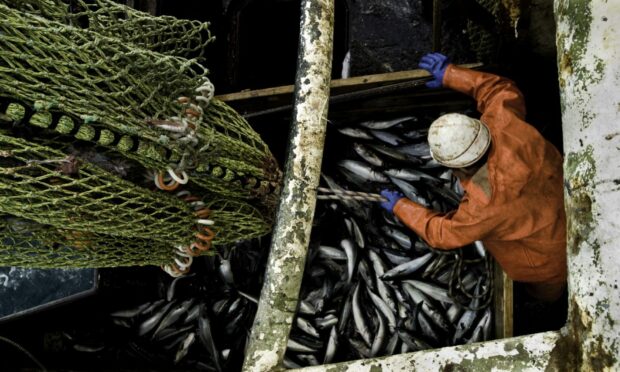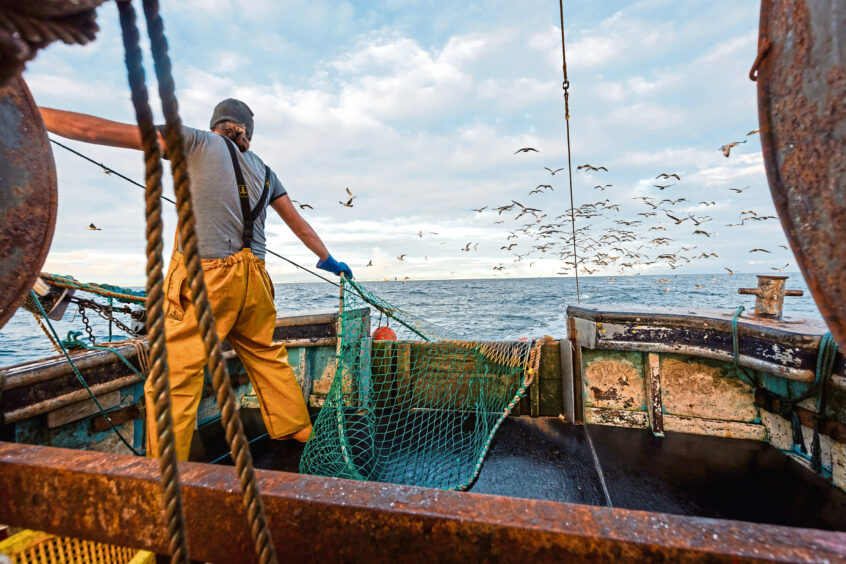Easier English language tests for migrant workers could be a “game changer” for the north-east fishing fleet, it has been claimed.
New immigration rules prohibit foreign nationals from working in UK territorial waters – within 12 nautical miles – without a skilled worker visa.
These require a higher level of English which those applying for them may not have.
Banff and Buchan Tory MP David Duguid recently met Immigration Minister Robert Jenrick to discuss the issue.
Industry relies on migrant workers
The north-east MP made the case for the English language test standard to be lowered from B1 (intermediate) to A2 (elementary), which is thought to be a more appropriate level.
Mr Jenrick has now pledged to look at the rules and see if changes need to be made.
The Scottish fleet has for years relied on crew from countries such as Philippines, Ghana and Sri Lanka.
Scottish White Fish Producers’ Association chief executive Mike Park warned a Home Office decision to move fishers onto the list of “skilled” workers in short supply “is immaterial if we can’t get the foreign fishers through the English requirement”.
He added: “Non-UK fishers coming to work here mainly reside in the lower social castes of their own country where exposure to English… is not readily available although, they do have enough verbal English to maintain a safe working environment.
“We have made this situation clear to the UK government but it seems there are none so deaf as those that wont listen.”
Mr Duguid said: “The industry has made it clear to me the standard required for the English test, particularly the written aspect, is more comprehensive than it needs to be.
“They also tell me fishermen are passing every other requirement of the skilled worker’s visa except the B1 level of English.”
Share your views on labour shortages in our comments section at the foot of this article
In a House of Commons debate on the issue this week, Mr Duguid said: “I think we all can agree the system of using transit visas which, technically, allowed fishermen to enter the country on the basis of ‘transiting’ outside the 12 nautical mile limit to work, was not fit for purpose.
“I have long advocated the use of the points-based immigration system.
“One stumbling block, however, is the current standard of the English written language test.
“The industry has asked for – as a proposal – the standard required to be reduced from B1 to A2.
“If such a move could be made on the English language testing, that could be a game changer in helping this vital industry and our coastal communities not just survive but thrive – as we all know that they can.”
Mr Jenrick committed to look into the concerns raised by Mr Duguid, as well as a Democatic Unionist MP from Northern Ireland, but did not want to “give false hope”.
The minister said: “The fishing sector has been using transit visas erroneously, in our view, for a number of years without consequence.
“It was vital to correct that given the labour abuse that we saw in some parts of the sector.
English language ‘fundamental’
“Foreign nationals coming to work in the UK, on land or on our waters, should comply with the immigration system. That includes the firms that are looking to hire those workers.
“The English language requirement is fundamental to successful integration into British society, helping visa holders to participate in community life and work.”
Orkney and Shetland Liberal Democrat MP Alistair Carmichael warned the industry’s supply of labour “simply is not there”.
He added: “We need a system that actually respects the rights of those who come here and contribute to our industry, and who keep our coastal and island communities growing and thriving.”






Conversation